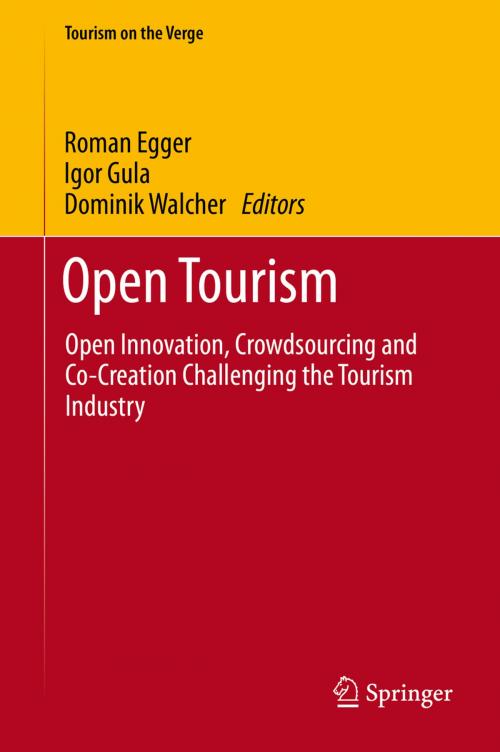Open Tourism
Open Innovation, Crowdsourcing and Co-Creation Challenging the Tourism Industry
Business & Finance, Management & Leadership, Production & Operations Management, Industries & Professions, Information Management| Author: | ISBN: | 9783642540899 | |
| Publisher: | Springer Berlin Heidelberg | Publication: | March 2, 2016 |
| Imprint: | Springer | Language: | English |
| Author: | |
| ISBN: | 9783642540899 |
| Publisher: | Springer Berlin Heidelberg |
| Publication: | March 2, 2016 |
| Imprint: | Springer |
| Language: | English |
Thisbook examines the concepts of open innovation, crowdsourcing and co-creation from a holistic point of view and analyzes them considering their suitability to the tourism industry. Methods, theories and models are discussed and examined regarding their practical applicability in tourism. The bookillustrates the theoretical mechanisms and principles of Open Innovation, Crowdsourcing and Co-creation with case studies and best practices examples. In addition to the scientific target group, the book is a useful resource for managers of the entire tourism industry.
First, the book presents the theoretical fundamentals and concepts in 11 specific chapters. This basis is then enriched by three parts with case studies, focusing on information, creation and provision respectively. Finally in a concluding part the editors sum up the book and give an outlook on the implications, learnings and future perspectives of open innovation, crowdsourcing and collaborative consumption in the tourism industry.
Thisbook examines the concepts of open innovation, crowdsourcing and co-creation from a holistic point of view and analyzes them considering their suitability to the tourism industry. Methods, theories and models are discussed and examined regarding their practical applicability in tourism. The bookillustrates the theoretical mechanisms and principles of Open Innovation, Crowdsourcing and Co-creation with case studies and best practices examples. In addition to the scientific target group, the book is a useful resource for managers of the entire tourism industry.
First, the book presents the theoretical fundamentals and concepts in 11 specific chapters. This basis is then enriched by three parts with case studies, focusing on information, creation and provision respectively. Finally in a concluding part the editors sum up the book and give an outlook on the implications, learnings and future perspectives of open innovation, crowdsourcing and collaborative consumption in the tourism industry.















